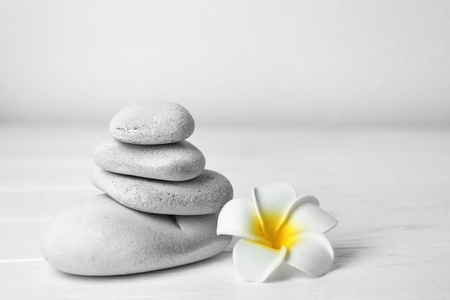1. Introduction: East Meets West
In the heart of every British home, there is a deep-seated respect for tradition, comfort, and a subtle reverence for the unseen energies that shape our daily lives. As the morning mist rolls across the moors and city gardens alike, an ancient Eastern philosophy quietly finds its place among Union Jack bunting and Victorian brickwork. Feng Shui, with its roots tracing back thousands of years to China, is now gently weaving itself into the fabric of British living. This meeting of East and West is not merely about rearranging furniture or adding a few plants; it is about exploring how the principles of harmony, flow, and balance can enrich our spiritual and psychological wellbeing. Imagine stepping into a London terrace or a Cotswolds cottage where every item is thoughtfully placed to encourage peace and clarity. The British way of life—marked by afternoon tea rituals, Sunday roasts, and an appreciation for cosy corners—finds new resonance when viewed through the lens of Feng Shui. Here, we set the stage to delve into how these ancient principles intertwine with distinctly British sensibilities, offering pathways to deeper contentment and inner calm in everyday living.
2. Understanding Feng Shui Through a British Lens
Feng Shui, an ancient Chinese philosophy, is often seen as enigmatic and mystical. Yet, when gently reinterpreted for the British context, it becomes a practical and accessible tool for enhancing daily life. At its heart, Feng Shui is about harmony—balancing the energies in our surroundings to cultivate well-being and prosperity. For many in Britain, this might sound akin to creating a welcoming home or tending to a garden with loving care. The essence remains: thoughtful arrangement and intention can transform not just spaces, but also mindsets.
The Bridge Between East and West
British homes are unique—often characterised by period features, cosy nooks, and a distinct sense of history. Integrating Feng Shui into such spaces does not require abandoning tradition; rather, it invites us to reimagine familiar settings with new eyes. For example, the hearth, so central in British culture, resonates with the Feng Shui principle of nurturing energy in communal areas. Similarly, the British appreciation for nature—seen in cherished gardens and countryside walks—aligns beautifully with the elemental balance at Feng Shui’s core.
Reinterpreting Ancient Roots
To adapt Feng Shui for modern British lifestyles, we might focus less on strict rules and more on intuitive adjustments. Consider light: replacing heavy curtains with lighter fabrics lets natural sunlight invigorate a room, echoing both British love for bright interiors and Feng Shui’s emphasis on energy flow. Or take cherished heirlooms—they can serve as grounding symbols, fostering continuity and stability much like traditional Feng Shui cures.
Comparing Traditional Feng Shui and British Adaptations
| Traditional Feng Shui Practice | British Home Adaptation |
|---|---|
| Use of Bagua map to define energy zones | Zoning rooms for specific activities (reading nooks, social spaces) |
| Emphasis on water elements for abundance | Incorporating fountains or displaying images of local rivers/lakes |
| Avoidance of clutter to promote flow | Decluttering with an eye towards simplicity and comfort |
| Balancing five elements (wood, fire, earth, metal, water) | Blending natural materials—stone fireplaces, wooden beams—with subtle accents |
This gentle unpacking offers a bridge between worlds: ancient wisdom meets contemporary living, all within the comforting embrace of a British home. By honouring both tradition and intuition, we open ourselves to new ways of seeing—and feeling—the spaces that shape our lives.

3. Cultivating Inner Harmony: The Spiritual Dimension
In the heart of Britain’s rolling countryside and bustling cities alike, there exists a deep-rooted appreciation for tranquillity and mindful living. This national reverence is echoed in the British love for peaceful gardens, quiet reading nooks, and contemplative walks along misty moors. Feng Shui, when introduced into this context, becomes more than an Eastern philosophy; it transforms into a spiritual practice that harmonises beautifully with the British yearning for inner peace.
Feng Shui encourages us to see our homes not merely as shelters, but as living sanctuaries that reflect our inner worlds. Through thoughtful arrangement—positioning a favourite armchair to catch the morning light or ensuring the hallway remains uncluttered—we begin to cultivate spaces that nurture our spirits. For many in Britain, where rainy afternoons often invite introspection, these mindful adjustments can make all the difference in fostering calm and clarity within.
This spiritual dimension of Feng Shui resonates with the British tradition of mindfulness. Whether it’s savouring a cup of tea by the window or tending to a cherished rose bush, these rituals are acts of presence that align seamlessly with Feng Shui’s guidance to create flow and balance. In doing so, we invite harmony not just into our rooms, but also into our thoughts and emotions—a gentle reminder that serenity is both an external and internal pursuit.
4. Boosting Well-Being: The Psychological Impact
Imagine a rainy Tuesday in Manchester. Emily, a teacher feeling the weight of winter blues, decides to rearrange her living room after reading about Feng Shui. She shifts her sofa to face the window, allowing more natural light to flood the space, and introduces a few green plants by her fireplace. Within days, she finds herself waking up lighter, eager to sip her morning tea by the new view. This simple act of embracing the flow of energy—a core principle in Feng Shui—has subtly uplifted her mood.
Across the country, Oliver in Brighton faces long work-from-home hours that leave him anxious and restless. Inspired by Feng Shui guidance, he designates a clear boundary between his workspace and relaxation area using a bookshelf as a divider. By doing so, he’s able to “switch off” at the end of each day. As weeks pass, he notices his stress levels drop and feels more in control of his environment—an empowering shift during uncertain times.
The psychological benefits of Feng Shui extend beyond mere aesthetics. By actively engaging with one’s surroundings, individuals tap into a sense of agency often missing from modern life. Feeling empowered to shape your environment is key to fostering well-being—something especially resonant in British homes where space may be limited but creativity knows no bounds.
Feng Shui Practice |
Psychological Benefit |
British Example |
|---|---|---|
| Rearranging furniture for better flow | Lifts mood, reduces feelings of stagnation | Emily’s brighter living room in Manchester |
| Defining zones within a room | Creates boundaries, reduces overwhelm | Oliver’s divided workspace in Brighton |
| Adding plants or natural elements | Promotes calmness and connection to nature | Potted ferns on a London flat windowsill |
| Maximising natural light | Increases energy and positivity | Sheffield family dining by the bay window |
This blend of mindful arrangement and intentional design encourages Britons to see their homes not just as shelters from drizzle or busy city life, but as sanctuaries for emotional renewal. In this way, Feng Shui offers practical tools for uplifting daily experience—helping people across the UK turn their living spaces into sources of balance and joy.
5. Tales from the Isles: British Stories of Transformation
The gentle hum of everyday life in the United Kingdom is interwoven with centuries-old traditions and the search for harmony in home and heart. As Feng Shui quietly finds its place among these traditions, stories of transformation ripple through bustling cities and tranquil villages alike. Consider the account of Harriet, a teacher from Bristol, who felt weighed down by relentless stress and insomnia. Guided by a local Feng Shui consultant, she repositioned her bed away from the door, cleared clutter from her bedroom, and introduced soft earth tones. Within weeks, she reported deeper sleep and an unexpected sense of emotional ease—a subtle but profound shift that seemed to echo through every aspect of her life.
Across the Pennines in Yorkshire, the Patel family faced daily tensions in their cramped terraced house. Inspired by a neighbours experience, they rearranged their living room to encourage open sightlines and introduced elements of wood and fresh flowers. The changes fostered more meaningful conversations and laughter returned to their family meals. Mrs Patel reflected, “Our home feels lighter; it’s as if we’ve let a breath of fresh air inside.”
Even in central London’s fast-paced environment, young professional Aiden sought refuge from the city’s chaos. Through thoughtful placement of mirrors to maximise natural light and careful attention to the flow between spaces, his flat became an oasis of calm amidst the urban clamour. Friends noticed his newfound composure, while Aiden described a “quiet confidence” that seemed to grow each day.
From Scottish highlands cottages to Cornish seaside homes, similar tales abound—each rooted in the unique character of British dwellings yet united by a common thread: when the energy within a space is nurtured with intention and care, spiritual and psychological renewal follows. These evocative anecdotes serve as living testament that Feng Shui is more than ancient wisdom—it is a bridge linking tradition with personal well-being across the British Isles.
6. Integrating Feng Shui into British Homes and Culture
Bringing Feng Shui into the heart of a British home is an invitation to weave ancient wisdom with local charm. The country’s distinctive architectural quirks—from Victorian terraces to cozy cottages—offer unique canvases for energy flow. Start by honouring the British love of natural light; open curtains wide to welcome in daylight, a vital source of positive chi, even on those classic grey afternoons. Embrace bay windows as opportunities for placing plants or meaningful objects that uplift the spirit and soften sharp corners.
Consider the ebb and flow of Britain’s famously changeable weather by incorporating elements that create warmth and comfort. A well-placed rug or a cluster of cushions in the living room not only harmonises a space but also fosters hygge, blending Danish cosiness with British hospitality. When arranging furniture, allow for easy movement and conversation—a nod to both Feng Shui’s principles and the cherished custom of afternoon tea with friends.
British homes often feature fireplaces, which can be powerful focal points. Keep them clear and well-maintained to encourage vibrant energy, and display seasonal décor such as spring flowers or autumnal garlands to attune your space to nature’s cycles. In gardens, so beloved across the UK, use winding paths and gentle water features to echo Feng Shui’s appreciation for meandering energy and serenity.
Blend tradition with intention: hang family portraits in the hallway to celebrate ancestry while allowing fresh air through periodically opened sash windows, symbolising renewal. Even in compact London flats, mirrors can amplify light and space when thoughtfully positioned—just avoid reflecting clutter or sharp edges.
Finally, honour local customs like Sunday roasts by creating harmonious dining areas where everyone feels welcome and seen. By thoughtfully adapting Feng Shui to fit Britain’s unique rhythm—its weather, architecture, and rituals—you invite both spiritual peace and psychological comfort into everyday life, enriching both home and heart.
7. Conclusion: A Harmonious Future
As we draw our exploration of Feng Shui’s spiritual and psychological benefits in the British context to a close, it becomes clear that this ancient practice is far more than a decorative pursuit. It is, at its core, an ongoing journey—one that invites us to mindfully consider the spaces we inhabit and the energies they cultivate within us. In Britain, where tradition and modernity often intermingle in the same street, Feng Shui offers a gentle invitation to pause, reflect, and intentionally design not just our homes, but also our inner landscapes.
The mindful arrangement of space—whether it’s positioning a favourite armchair to catch the morning sun or introducing soft greenery to soften a room’s edges—serves as a subtle yet powerful catalyst. It grounds us in the present moment, reminding us of the deep connection between our environment and our wellbeing. For many across the UK, from bustling London flats to serene Cotswold cottages, these conscious choices create sanctuaries that nurture resilience, clarity, and spiritual enrichment amid life’s uncertainties.
Embracing Feng Shui within a British setting does not demand the abandonment of personal style or local heritage; instead, it encourages their harmonious integration. By weaving together British sensibilities—such as a love for cosiness and historic charm—with principles of energy flow and intention, we craft spaces that are uniquely restorative and meaningful. The result is an environment that reflects not only who we are but who we aspire to become.
Ultimately, the journey with Feng Shui is continuous. Each adjustment we make in our surroundings echoes inward, inviting growth and grounding in equal measure. As more Britons discover the quiet power of intentional space-making, there emerges a collective movement towards homes—and lives—that are both spiritually attuned and psychologically balanced. In this way, Feng Shui gently guides us toward a future where harmony is not merely an aspiration, but a lived reality woven through every room and every day.


